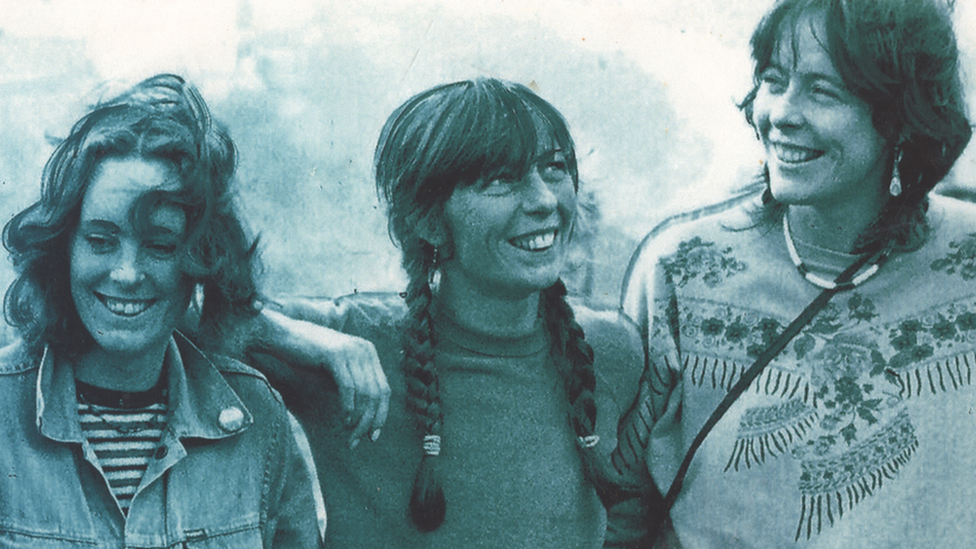Swansea RFC: The historic rugby tour behind the Iron Curtain
- Published
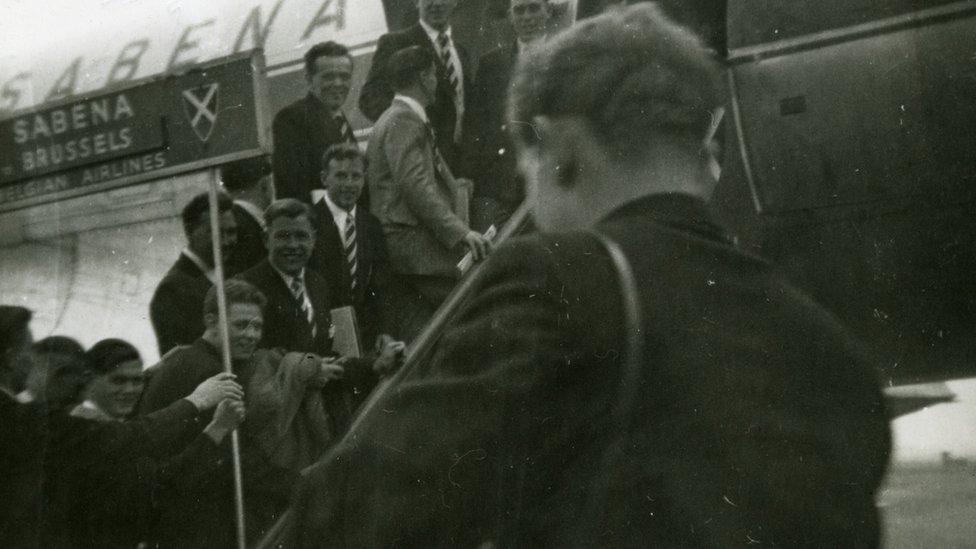
The tour was an extraordinary moment in Swansea RFC's 150 year history
In 1954, Swansea RFC ventured into unchartered territory to play against Romania's top two rugby teams.
It was the first time a British rugby club had ever ventured behind the Iron Curtain - the political boundary between Western Europe and the Soviet Union's states in the east.
The matches against Locomotiva Bucharest and Constructorul Bucharest were arranged to celebrate 10 years since - what the communists saw as - their liberation from Nazi Germany.
But during the Romanians' visit to St. Helens in 1955, a mysterious defection brought the Cold War closer to home.
As part of Swansea's 150th anniversary this year, the St. Helens Archive has produced an online exhibition detailing the fascinating tale.
Romania had been playing international rugby since 1919, and along with France, they were a key power in an attempt by the sport's second-tier sides to set up a Northern-Hemisphere rival competition to Britain's Home Nations championship.
But after the communist takeover of Romania, its national rugby team found itself isolated from the top level of the sport.
Nevertheless, the Welshmen were seriously impressed by the standard of play they encountered, with tour manager Rowe Harding, writing: "They tackle hard, their covering defence is magnificent, and they pass the ball at top speed."
The seeds of the tour were sown the year before, when Welsh Swimmer Dick Smale had competed in the 1953 World Festival for Youth and Students, where he was asked to approach a rugby team which might be open to travelling behind the Iron Curtain.
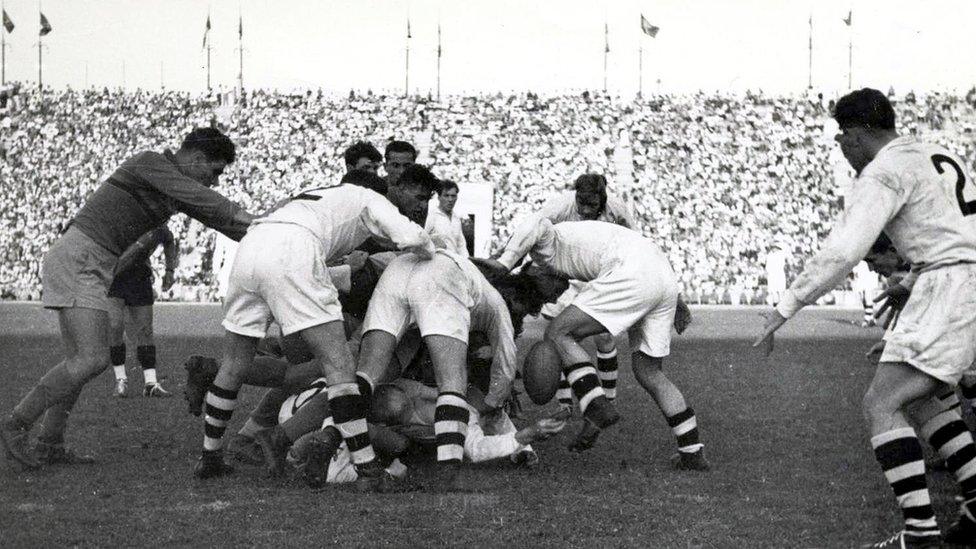
The tour to Romania was such a success that it spawned several return trips throughout the late '50s and early '60s
Though Cardiff RFC and Cambridge University were considered, St. Helens archivist David Dow believes that it might have been another Cold War connection which swung it for Swansea.
He said: "Legendary Llanelli coach Carwyn James was playing for Swansea at the time. He'd worked for the MoD and was a fluent Russian speaker, so it's not a huge leap of faith to suspect that he might have had a hand in getting the tour rubber-stamped by the powers that be.
"The fact that the Foreign Office approved the tour really isn't as strange as you might think. At the time Romania were looking to loosen their ties to the Soviet Union and foster diplomatic and trade links with the West.
"The very act of choosing a British team to come and celebrate the anniversary of their liberation by the USSR was in itself a huge slap in the face for the Kremlin."
The tour got off to an unpromising start when two of Swansea's three planes were diverted to Prague because of storms.
Deprived of preparation time, the opening match against Locomotiva Bucharest was played in a withering 32C, and despite a second half comeback, the Welshmen were unable to handle the heat and succumbed 23-12.
The second match was postponed a day until the weather broke, and in more favourable conditions, Swansea ran out 16-5 victors against Constructorul Bucharest.
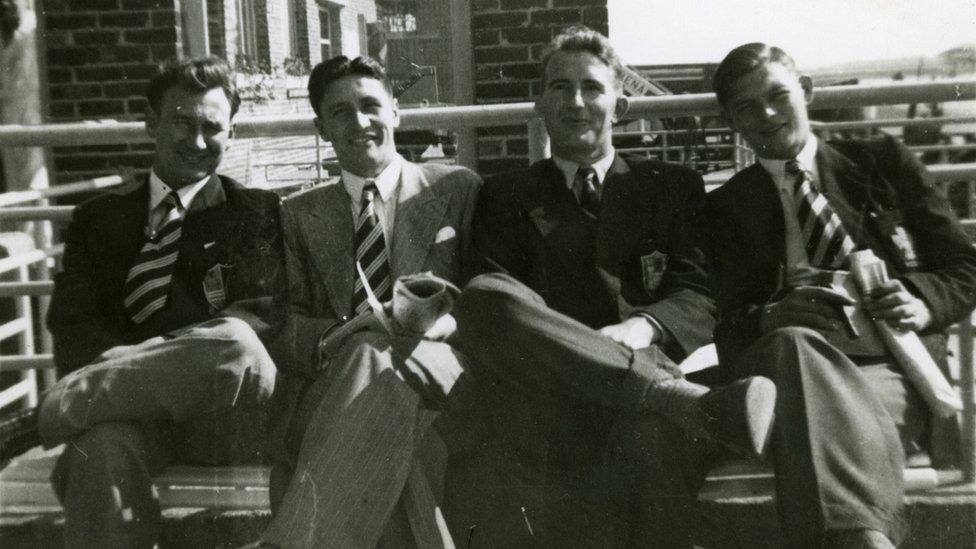
The Swansea team were able to relax off the field while on tour
Off the field Mr Dow says the atmosphere was highly convivial.
"By all accounts the Swansea players were treated incredibly well, they were wined and dined, and chauffeur-driven wherever they wished to go.
"Of course they were always being watched, the Romanians asked them to submit timetables of their proposed movements, and their rooms were bugged - something which caused great hilarity for the players as they shouted anti-communist abuse, knowing that the secret police were listening but couldn't do a single thing about it."
The defection
But seemingly the Romanian secret police weren't quite as vigilant the following year, when their side was welcomed back to Britain.
With the help of Swansea players Dil Johnson, Matty Davies and Davies' wife - a Romanian prop named S. Luric was able to defect to the West.
They invited him round for a dinner approved by the Romanians, and then, in a pre-arranged move, Mr Luric was spirited away from the house by MI5 right under the noses of the communist authorities.
Virtually nothing is known about his life in Britain after 1955, nor even what his full name was.
Some sources list him as Stan Luric, though this is yet to be confirmed.
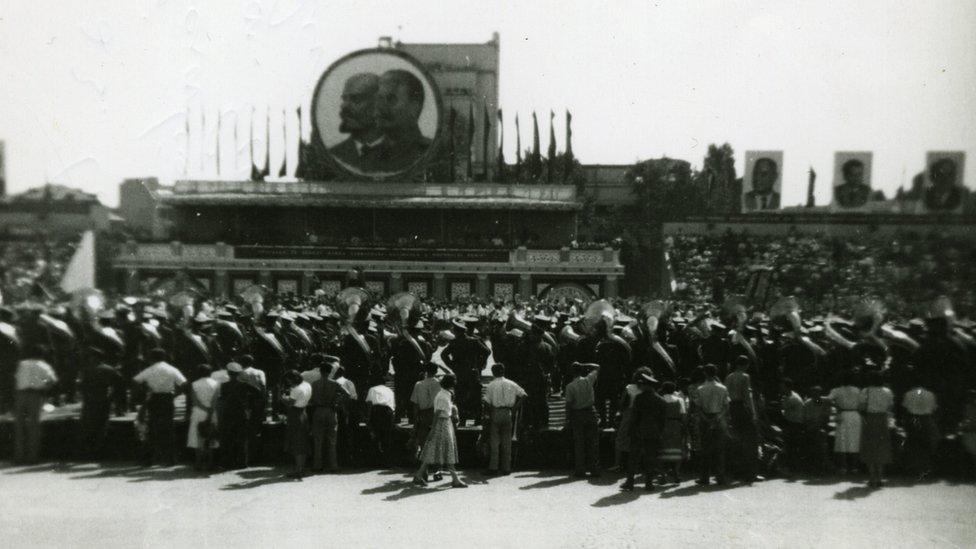
The fall of communism in Romania and the introduction of professionalism into rugby coincided with the national team's decline
Mr Dow said: "There are rumours which we're chasing that Luric played for Harlequins after his defection - maybe under another name - but there isn't the slightest indication of why he wanted to defect or why MI5 were so keen to take him on.
"One theory is that a lot of the top Romanian rugby clubs - like CSA Steaua Bucharest and Dynamo Bucharest - were based around the army and police, so possibly he had military or security information he could trade."
Whilst Romania remained a relatively powerful force in world rugby until the 1990s, the fall of communism and the introduction of professionalism into the sport have seen them dramatically decline in recent years.
The new exhibition contains newspaper cuttings, diaries, photos and letters, and has been made possible by the help of Swansea University post-graduate students Cosmin Grigore and Lewis Douglass.
Mr Dow says Romanian-born Mr Grigore has been vital in helping to translate and contextualise contemporary sources from his homeland.
It is available to visit in person by appointment, but can be seen by everyone online.
Mr Dow said: "It's a fantastic chapter in Swansea RFC's 150 year history.
"But perhaps it wasn't the most sensible thing for us to have done, because those tours of the '50s led on to Romania beating Wales twice during the 1980s."


- Published15 November 2019
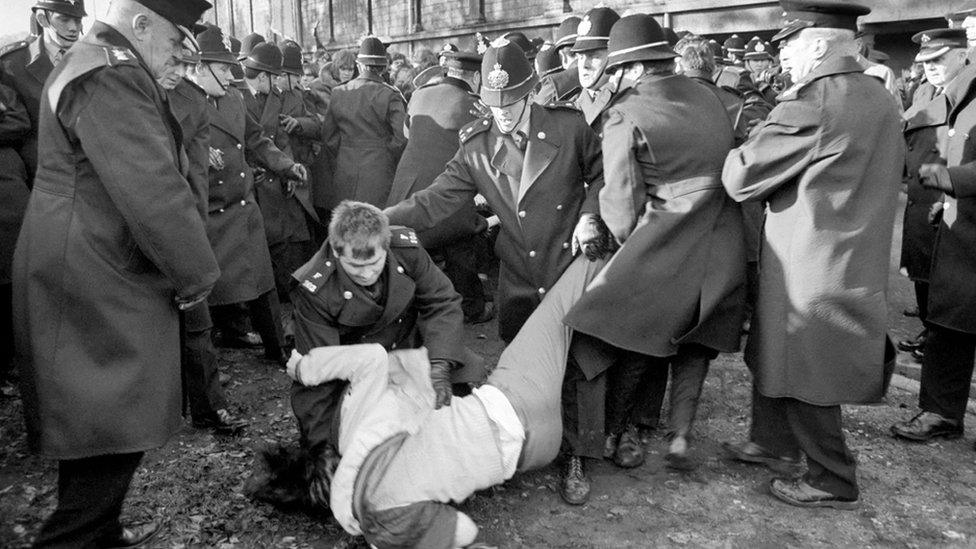
- Attribution
- Published2 March
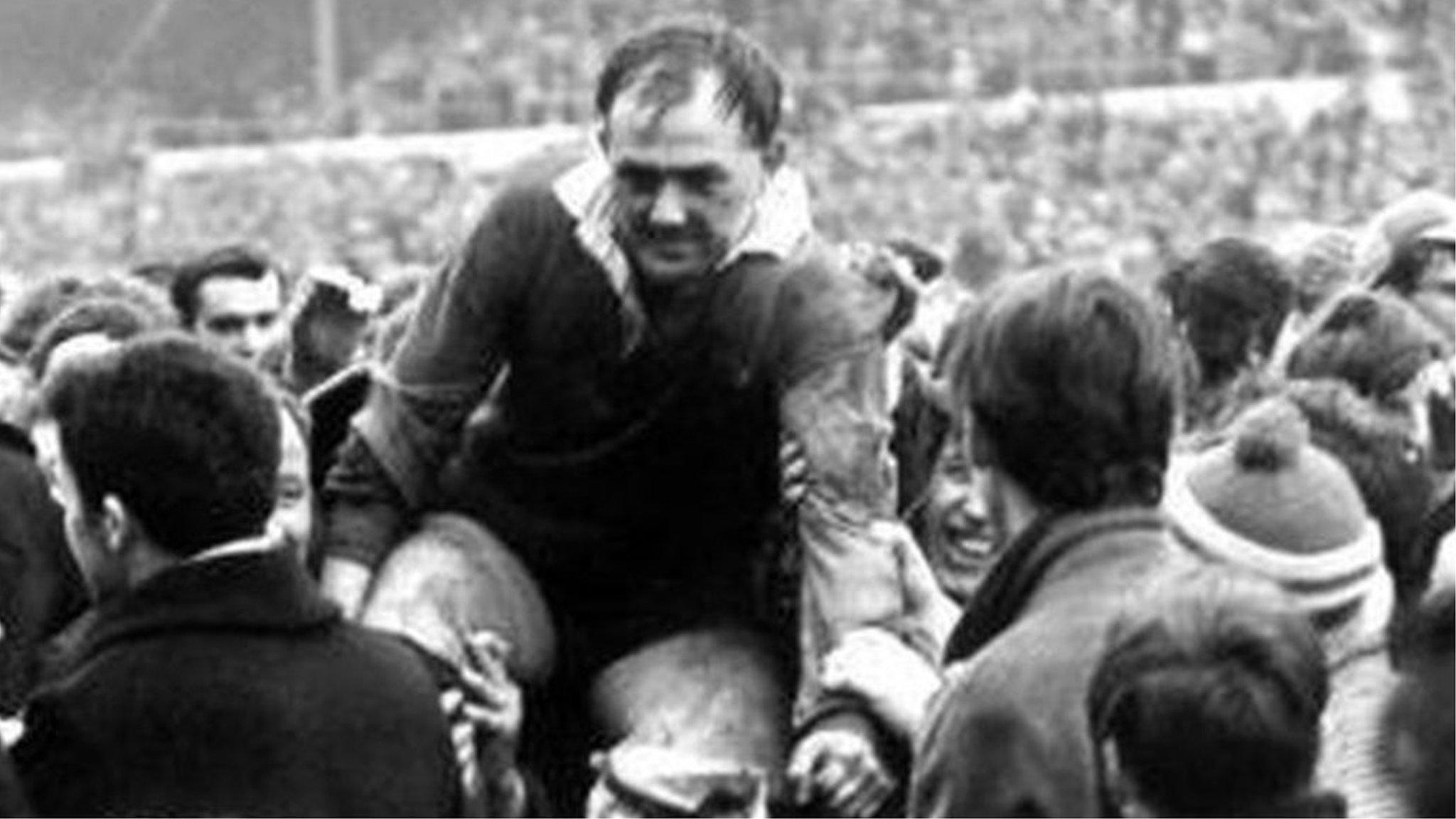
- Published25 August 2021
